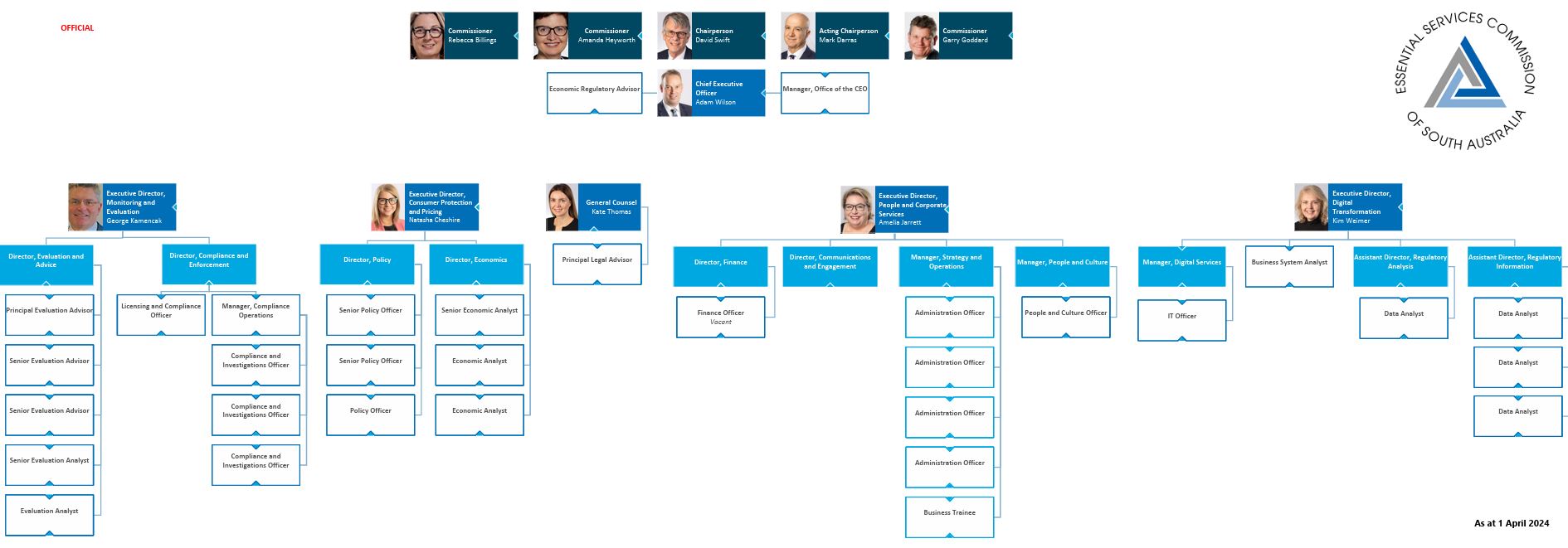Organisation structure

The Essential Services Commission (Commission) employs a diverse range of professional and technically qualified staff, with backgrounds in areas including economics, engineering, accounting, human resources, law and information technology.
The Commission is committed to a diverse and inclusive workplace, and through its Diversity Statement, understands that a diverse workforce is essential to the achievement of the Commission’s purpose and primary objective. Existing corporate policies support the Commission’s internal commitment to workplace diversity, including people living with physical or mental impairment, training and development, and health and wellbeing. The Commission’s Disability Access and Inclusion Plan further outlines the Commission’s strategies for achieving accessibility for all members of the wider Community.
The Commission is set up as a functionally based organisation, rather than industry based. Accordingly, the work groups are not based around particular essential services, but rather around functional areas:
Office of the Chief Executive Officer
This group supports the work of the CEO and Commissioners to efficiently and effectively deliver the Commission’s objectives and functions. We are responsible for corporate governance, legal, strategy and planning and executive support.
Consumer Protection and Pricing Group
This group is responsible for price regulation, access regulation, licensing, and setting consumer service and reliability standards.
Regulatory Monitoring and Evaluation Group
This group is responsible for compliance, monitoring and enforcement, performance reporting and evaluation, Local Government advice, and Retailer Energy Productivity Scheme (REPS) administration.
People and Corporate Group
This group is responsible for workforce, finance, communications and engagement and administrative support to the Commission. The team also focuses on the overall strategy and performance of the Commission. The team enables organisational effectiveness and is committed to supporting a high-performance culture.
Digital Transformation Group
The group is responsible for developing, implementing and maintaining a suite of data, information and technology systems, processes, strategies and services that support Commissioners and staff, turning data and information into assets that are valued and used by the Commission for regulatory development, implementation and monitoring.
Legal and Governance Group
This group is responsible for legal, governance and strategic advice to facilitate sound regulatory and corporate decision-making, in order to deliver long-term benefits to consumers of essential services.
Organisation chart - April 2024
